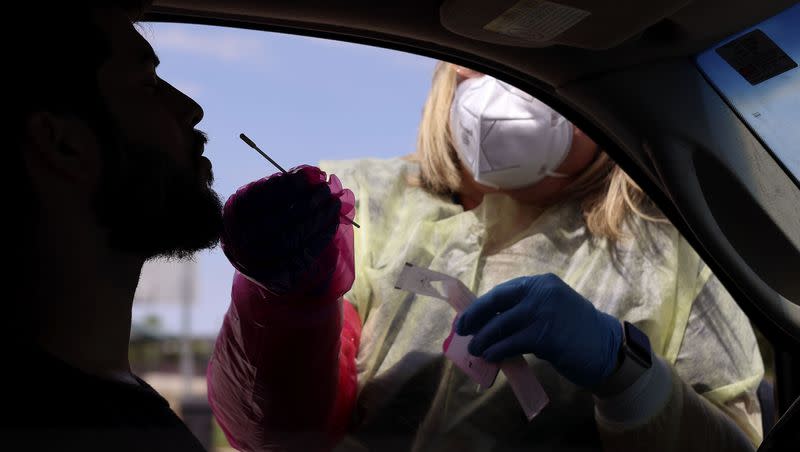Clinical trials for long-COVID treatments underway at the National Institutes of Health

The National Institutes of Health, or NIH, on Monday announced clinical trials to test four potential treatments for long COVID-19, opening enrollment to the public, with seven more treatment trials predicted to come this year.
The news release said the trials are part of NIH’s Researching COVID to Enhance Recovery (RECOVER) Initiative, which focuses on the most severe long-COVID symptoms and is based on two years’ worth of RECOVER research.
Two clinical trials have been activated:
RECOVER-VITAL is meant to reduce lingering infection on a cellular level.
RECOVER-NEURO is meant to alleviate cognitive dysfunction like brain fog or memory problems.
Two others will launch soon:
RECOVER-SLEEP, meant to reduce sleep disturbances or excessive sleepiness.
RECOVER-AUTONOMIC, meant to treat problems in the autonomic nervous system, which includes bodily functions like heart rate and digestive system activity.
Related
Trial details
The news release said treatments for each trial will vary, including drugs and biologics medical devices.
CBS News said up to 900 patients will be enrolled in RECOVER-VITAL, which will use Paxlovid antiviral pills, a product of the pharmaceutical company Pfizer that’s been approved by the U.S. Food and Drug Administration.
RECOVER-NEURO will include two web-based brain training programs and a medical device that electrically stimulates brain circuits, The Associated Press said.
RECOVER-SLEEP will compare two wakefulness drugs with a placebo to combat excessive sleep, The Washington Post said, and “a second trial focused on patients who have trouble falling or staying asleep will test treatments designed to improve sleep quality.”
Treatments that target improving bodily functions, like “intravenous immune globulin, which is designed to suppress the immune system, and ivabradine, which has been used in chronic heart failure,” might be used in RECOVER-AUTONOMIC, CBS News said.
Related
What experts are saying
Dr. Ziyad Al-Aly of Washington University in St. Louis told The Associated Press that these trials are “a year or two late and smaller in scope than one would hope but nevertheless it’s a step in the right direction.”
Kanecia Zimmerman, the principal investigator of the RECOVER Clinical Trials Data Coordinating Center, said in the news release, “Our patient and community representatives have provided critical input to help us ensure that the results of these trials are applicable to people across the country and become available as soon possible.”
Dr. Larry Tabak, acting director of the National Institutes of Health, told reporters, “Our hope is that these treatments will work. However, we may learn that some interventions do not provide measurable relief, and this will also inform patient care,” per CBS News.
Reuters said long COVID has more than 200 symptoms.
Upinder Singh, a professor of infectious disease at Stanford Medicine and co-principal investigator for a Paxlovid clinical trial, told the Post, “Researchers don’t understand whether the symptoms are related to one another.”
More information on each trial is available online at https://trials.recovercovid.org/.

